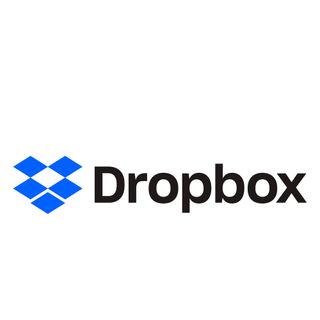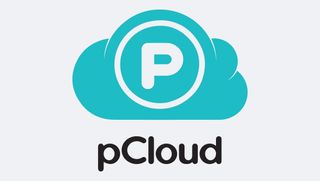The best file sharing apps in 2025
Find the best file sharing apps for easy, secure collaboration

When it comes to picking the best file sharing apps, it's all about finding that sweet spot between user-friendliness and security. Our team has spent countless hours putting these apps through their paces, so we know what to look for. We specifically look for intuitive interfaces, robust encryption, and the ability to handle all sorts of file types and sizes.
After all our testing, we believe Google Drive is the top option overall. It's easy to use, and with 15GB of free storage, it's perfect for sharing files with friends and coworkers.
Everyone has different needs, though, so we've rounded up a bunch of other great options below that may even serve you better.
The quick list
Looking for the best file-sharing apps of 2025? Here’s a concise overview of the top apps we’ve reviewed, highlighting their standout features. Check the detailed reviews below to find the perfect fit for your requirements.

The best file sharing app
Google Drive stands out with its generous 15GB free storage plan. It offers extensive third-party integrations, affordable pricing, top-level security capabilities, and a wide range of backup options.

The best value file sharing app
Dropbox, a pioneer in file-sharing, offers a range of pricing plans suitable for various needs. It boasts strong 256-bit encryption, ensuring files are secure at rest and during transfers.

The best budget file sharing app
Box offers significant space in its free tier and is known for rapid file sharing. It integrates seamlessly with platforms like Google Workspace and Slack.

The best all-round file sharing app for teams
OneDrive is feature-rich, user-friendly, and beautifully designed. It offers seamless integration with the Windows operating system. OneDrive’s security is commendable, with options for individual file encryption.

The best file sharing app for Apple users
iCloud is the go-to file-sharing option for Apple enthusiasts. It offers seamless integration with Apple services and provides 5GB free with every Apple device.

The best file sharing app for security
Prioritizing security, SpiderOak One offers end-to-end encryption, ensuring users have full control over their encryption keys. It’s a consumer-centric product with a focus on security over additional features.

The best no-registration file sharing app
WeTransfer stands out for its simplicity and because it doesn’t require registration. It offers encrypted uploads and an intuitive design, making it popular for quick and easy file sharing.

The best file sharing app with a one-off payment
pCloud is known for its affordability and generous storage options. It offers robust security features, including TLS/SSL encryption.

The best free file sharing app
Send Anywhere is ideal for those seeking a basic, free file-sharing solution. It offers a generous free tier and 256-bit encryption, ensuring files are safe during transfers.
Our deals on the best file sharing apps
Why you can trust Tom's Guide
SpiderOak: 150GB storage for only $6 a month
SpiderOak offers a range of cloud storage plans that feature drag-and-drop file-sharing, alongside data recovery. The Share Room web interface allows for temporary, self-destructing file sharing, and its 150GB storage plan starts at $6 a month.
pCloud: Get 500GB storage for life for $175
Offering a suite of top additional features beyond cloud storage, pCloud provides backup and restore functions, playlists and video streaming, and link sharing for files. Its individual plans offer lifetime subscriptions, with its cheapest offering 500GB of storage for a one-off $175.
The best file sharing apps of 2025 in full
The best file sharing app overall

Specifications
Reasons to buy
Reasons to avoid
Google Drive offers nearly all of the same functionality as Microsoft OneDrive, but its free plan goes further in providing an impressive 15GB of free storage, which may be plenty for smaller enterprises. And like OneDrive, it allows you to share, create, and edit files with ease.
Google is a huge multinational firm with top-level security capabilities, so your data is in good hands during transfers. However, privacy could be a concern, and they will probably collect some of your online activity for advertising reasons. It is also an oversight that the service offers no password protection options when sharing a file.
Google Drive's robust backup capabilities for both Android and iOS devices should not be overlooked. The platform allows you to effortlessly backup all your photos and videos from your smartphone, a feature that proves incredibly useful for those who require a safe repository for their media files.
The settings in Google Drive, however, can be confusing. The platform presents options to either stream or mirror files, which are not straightforward terms for the average user. The 'streaming files' option lets you connect to Google Drive as if it's a network drive, while the 'mirror files' option results in Google Drive functioning more like Dropbox. But unlike Dropbox, with the mirror files setting, you cannot opt out of syncing any files or folders; everything is perpetually in sync.
Overall, we like Google Drive's extensive support for its third-party applications, affordable pricing, and extensive set of backup options. Its apps also work well on a wide range of platforms.
Read our Google Drive review and our Drive Enterprise review.
The best value file sharing app

Specifications
Reasons to buy
Reasons to avoid
Dropbox was one of the earliest file-sharing platforms to become a household name, and it has had time to hone its offering. Several pricing plans under both its Individual and Business tranches means you can find the right setup to suit your needs. If you’re not entirely sure, there's a free 30-day trial.
With Dropbox, you'll find top-of-the-line synchronization. It pioneered the feature where all the contents of a folder are constantly synced between multiple devices—a feature that grabbed millions of users' attention when it first appeared.
Even today, no other competitor has managed to replicate Dropbox's level of efficiency in synchronization and shared folder access. It's particularly useful when you need to share files with others, ensuring both you and your colleagues can access and edit them simultaneously and seamlessly.
Dropbox's offerings extend beyond just the basics. For instance, with the consumer subscriptions, there's an automatic backup feature for both internal and external disks. This means you can use Dropbox as a cloud backup, similar to services like Backblaze, while simultaneously using it for file sync.
In terms of security, there are a couple of concerns. Firstly, Dropbox has a huge market share, and so—along with its rivals—it is naturally an obvious target for malicious attacks. And secondly, the firm has reserved the right to decrypt any file that is stored on its servers, as well as disclose that information to a third party.
Thankfully, Dropbox has recently beefed up its security measures. At rest, files are protected with 256-bit encryption, and during transfers, they are encased in an SSL/TSL tunnel. If you are not looking for a specialist option, but one that is still thoroughly reliable, Dropbox is a solid way to go.
Read our Dropbox cloud storage review and our Dropbox Business review.
The best budget file sharing app

Specifications
Reasons to buy
Reasons to avoid
Box has been Dropbox’s biggest rival for some time. Previously, the former was geared towards businesses and the latter SMEs and individuals, but no longer. Both now aim to capture every part of the file-sharing market, and Box’s offering is impressive.
It has four pricing plans to choose from, but its free tier has significantly more space than Dropbox’s. Like its rival, it can be integrated with Google Workspace and Slack. It also offers a useful Keysafe feature, allowing admins to easily manage encryption keys.
Box sets itself apart in the crowded file-sharing market with its robust integration capabilities. From Microsoft 365 and Google Workspace to Adobe Creative Cloud, the service ensures smooth cooperation on tasks with a focus on syncing files within a dedicated folder.
This is a cloud storage platform, not a cloud backup solution, and as such, it excels at providing an easily managed, shared space for your files. You can easily control access to files and folders, monitor collaboration, and track file usage, making it a top choice for businesses with complex cloud storage needs.
However, what truly elevates Box’s offering is its focus on security. File transfers, logins, and even app installations are all tracked and logged. With the addition of the full Admin console, you get even greater auditing and control options. Every time a file or folder is accessed, you can be informed by email. The service also offers an auto-delete feature to set some files and folders to expire on a specific date, adding an extra layer of control.
Box is great for rapidly sharing files with friends or colleagues. You get a lot of space in the free tier, and two-factor authentication is available for improved security.
Read our Box review and our Box for Business review.
The best file sharing app for teams

Specifications
Reasons to buy
Reasons to avoid
Microsoft OneDrive is packed with features, incredibly usable, and beautifully designed. In some ways it surpasses expectations. Desktop users, for example, are able to access files that they didn’t specifically decide to upload—an incredibly handy feature that shows how much time Microsoft has spent getting OneDrive right.
Being a Microsoft product, much of the advanced functionality available for OneDrive is tied to the Windows operating system, but there are also useful OneDrive apps for iOS, Android, and macOS.
When it comes to file sharing, OneDrive sets the standard for its powerful collaborative editing feature. As a user, you can share any files or folders stored in the OneDrive cloud with either viewing or editing privileges. This not only makes teamwork more efficient but also reduces the hassle of sending files back and forth.
Importantly, if you are a paid user, you can add password protection to your shared files and set expiration times for sharing, giving you greater control over the security and access of your files.
Also, OneDrive's integration with Microsoft 365 apps allows you to create documents in apps like Word or Excel in your OneDrive folder, making them accessible from any device and the web, with real-time collaborative editing.
In terms of security, OneDrive has never been the focus of any concerns or controversy, unlike many of its rivals, which speaks to the software’s reliability. Individual users can also individually encrypt their files locally on a hard drive, adding an additional layer of protection.
Read our Microsoft OneDrive review and our OneDrive for Business review.
The best file sharing app for Apple users

Specifications
Reasons to buy
Reasons to avoid
Apple, too, has a cloud file sharing platform in the form of iCloud. iCloud is an attractive file-sharing option, and likely the best fit if you are already deeply integrated with the Apple ecosystem. Although the free tier offers very little space, those with an iPhone, Mac, or iPad are given 5GB free.
Aside from the 2017 phishing attack, which appears to be a one-off, Apple has steered clear of security problems with iCloud. It should therefore be a safe choice for sharing files easily over iOS and macOS.
iCloud now has a dedicated Files app with its own iCloud Drive section. This app allows you to copy, move, delete, and share files with ease. The interface is visually appealing, as you would expect from Apple, and operating it is smooth and uncomplicated.
With iCloud Drive, you get an automated syncing service that functions efficiently in the background. Files and documents added to iCloud Drive get synced instantly to the web. On a Mac, you have the option to include the Desktop and Documents folders in the sync list. It's a great tool for file sharing within Apple's ecosystem.
In our testing, we were impressed at the 24-hour online chat technical support and how easy it is to get two-factor authentication working in iCloud. However, iCloud is a poor option if you primarily use Windows on your desktop computer or the Android OS on your phone, as there are no dedicated iCloud apps for these platforms.
Read our iCloud review.
The best file sharing app for security

Specifications
Reasons to buy
Reasons to avoid
SpiderOak One is a cloud storage solution with end-to-end encryption, meaning you are in charge of your encryption keys so even SpiderOak employees can't decrypt the files stored on the platform.
SpiderOak One is still a consumer-facing product at heart, without too many business-focused features of which to speak.
The app doesn't simply re-upload an entire file every time you make a small modification. Instead, it scans your files, identifies the altered parts, and uploads the new data. This allows it to store the history of your files and minimizes the amount of space and bandwidth required. The service also uses de-duplication and condenses your files to maximize your storage space.
Additionally, when it comes to sharing files, SpiderOak One offers a feature called ShareRooms. With ShareRooms, you can share any folder that is already part of your backup set. Once you've set up a ShareRoom, you can add new files and edit existing ones, with all changes automatically visible to everyone with access.
We found that SpiderOak One has massively prioritized security, leading to weaknesses in other areas. The design, whilst handily integrated with SpiderOak’s other products, has a few of the additional features some teams may require, such as synced, real-time document editing.
It is also a relatively expensive way to go—after the free 21-day trial, the cheapest tier is $69 for 150GB of space for a year. One benefit, however, is that every user can have unlimited devices, so it's certainly worth checking out SpiderOak One.
Read our SpiderOak review.
The best no-registration file sharing app

Specifications
Reasons to buy
Reasons to avoid
WeTransfer is a hugely popular filer sharer and for good reason. It’s easy to use and doesn’t require registration. Further, it is secure—all uploads are encrypted, as is the link that is sent to recipients. One caveat is its partial encryption, which means that third parties could theoretically intercept emails and gain access to files, so it’s not ideal for the most sensitive data.
WeTransfer offers a storage app called Collect that works on Android, iOS, and in your web browser. With Collect, you can gather together related content on boards. These boards can be shared with others and teams can collaborate together on boards.
WeTransfer complies with all GDPR laws and everything is encrypted with TLS and AES-256 encryption. We also found WeTransfer's customer support to be responsive and helpful.
For your everyday file-sharing needs, WeTransfer does hit the mark perfectly. It offers a swift and efficient way to send files up to 2GB in size, even without an account. This ease of use has seen it become an industry favorite, with almost 100 million users globally relying on it.
It even offers traceability, allowing you to keep tabs on whether your recipient has downloaded the files or not. However, it's crucial to note that these shared files, under the free plan, have a lifespan of seven days - a clock that starts ticking right from when you first share the link.
The Pro version, priced at $10 a month, is designed for professionals who frequently need to transfer larger files, as it ups the file size limit to 200GB. It guarantees the longevity of shared links by removing the expiry date and offers 1TB of cloud storage per user.
The real selling point, however, lies in its branding and collaboration features. As a Pro user, you can customize your WeTransfer landing pages and emails with your branding and imagery.
Read our WeTransfer review.
The best file sharing app with a one-off payment

Specifications
Reasons to buy
Reasons to avoid
pCloud provides a generous 10GB free storage as standard, and its premium plans are similarly generous.
pCloud is relatively unique in that you can make a single payment to get cloud storage for like. For one-off payments of $199 or $399 you can get 500GB or 2TB respectively, which is fantastic value if you utilize the service long-term. PCloud also introduced a 10TB lifetime plan for a one-time payment of $1,190.
In terms of security, pCloud is impressive. It covers most bases with 256-bit and TLS/SSL protection, but another layer of encryption is available for $5 a month.
pCloud offers an impressive range of features for file sharing. Its file manager is robust, allowing you to sort and search through shared files with relative ease. It provides the option to directly share files from the pCloud virtual drive with your friends and family.
To share a folder, pCloud offers you the convenience of sending email invitations and selecting whether you want to allow recipients to edit the contents of the shared folder or merely view its contents. The mobile app offers an additional feature of uploading videos and photos to pCloud directly from your phone, and browser extensions for Firefox, Chrome, and Opera allow you to save content directly to your pCloud from a webpage.
Sadly, its editing and collaboration capabilities don’t compare to much of the competition. This may not be important if you're only looking to share or store files online, but it makes working together on documents as a team more challenging than with some other solutions.
Read our full pCloud review.
The best free file sharing app

9. Send Anywhere
Our expert review:
Specifications
Reasons to buy
Reasons to avoid
If you're looking for a basic file sharing solution just to get some files out to friends or colleagues, Send Anywhere can help. Send Anywhere is entirely free and comes with 256-bit encryption as standard, keeping your files safe in transit. Additionally, the maker of the app has insisted that they never look at the contents of any transfer.
Whilst Send Anywhere has ads on its free version and is mainly designed for sharing and not storing data, it could be ideal if you are simply looking to send files quickly. Having a smaller user base, it’s also arguably less likely to be targeted by malicious parties, but then it's also less tested.
Send Anywhere has a 10GB monthly download limit per free user account, making it most useful for those who only need to share small files with a small group of people.
One of the most noteworthy features of Send Anywhere is its real-time file sharing functionality. Upon selecting the file you wish to share, the app produces a six-digit key that can be shared with the recipient. As soon as the recipient enters this key into their own Send Anywhere app, the file begins to download.
The recent update brought a useful addition - the Share Link feature. With this, you can create a link to the files you want to share, and send it via email, text or social media, giving the recipient the flexibility to download the files whenever they want within a 48-hour window. It’s worth noting that this feature doesn't require the recipient to have the app installed, which makes it a handy tool for sharing files with anyone.
The best file sharing apps, compared
| File sharing app | Free tier | Security specialty | Operating systems |
|---|---|---|---|
| Google Drive | 15GB | Extensive backup options | iOS, Android, Linux, macOS, Windows |
| Dropbox | 2GB | 256-bit encryption | iOS, Android, Linux, macOS, Windows |
| Box | 10GB | 2FA | iOS, Android, macOS, Windows |
| Microsoft OneDrive | 5GB | Individually-encrypted files | iOS, Android, macOS, Windows |
| iCloud Drive | 1GB | Keychain passwords | iOS, macOS |
| SpiderOak Groups | N/A | Zero-knowledge encryption | iOS, Android, Linux, macOS, Windows, Fedora |
| WeTransfer | 2GB | All uploads encrypted | iOS, Android, Linux |
| pCloud | 10GB | TLS/SSL encryptino | iOS, Android, Linux, macOS, Windows |
| Send Anywhere | 50GB | QR code scanning | iOS, Android, Linux, macOS, Windows |
File sharing app FAQs
What is a file sharing app?
At its core, a file sharing app is a software application that allows users to share files with others over the internet or a local network. These files can be anything from documents and images to music and videos.
One of the most important features of a file sharing app is its ability to securely transfer files from one device to another. This is usually done using encryption protocols that ensure the data is protected from unauthorized access or interception.
Another key aspect of a file sharing app is its user interface. A good file sharing app should be intuitive and easy to use, allowing users to quickly and easily share files without having to navigate through a complex set of menus.
In addition to these core features, many file sharing apps offer additional functionality such as the ability to sync files across multiple devices, collaborate on documents in real-time, or share files with a select group of people.
Overall, a file sharing app is an essential tool for anyone who needs to share files with others on a regular basis.
How secure are file sharing apps?
Whatever form of file storage you utilize, whether on-prem or cloud storage, or even cloud storage vs external hard disk drives, file and data security is integral. While storage or sharing apps in the cloud isn't theoretically as secure as local storage, the best cloud storage and file sharing platforms utilize high-level encryption and security features.
If you're wondering is cloud storage secure, how secure is it, and how it protects your data, it's worth remembering that most providers' plans include those aimed at businesses, for whom cloud storage security is crucial. As such, providers and file-sharing platforms will invest in security, especially given international rules on data and privacy.
Important elements to look for in a provider of file-sharing technology include end-to-end encryption and zero-knowledge architecture: respectively making services almost hack-proof, or preventing even a provider's staff from accessing your files and data.
If these aren't available, make sure to look for in-transit and at-rest encryption. This means that data is made indecipherable when stored and when being shared or transferred. Should a cybercriminal intercept your files, they wouldn't be able to see them.
Should you use free file sharing apps?
When it comes to casual or low-level file sharing, there's no reason not to use free file-sharing apps if you've checked that they offer security features and tools. For those with less requirement for large or sensitive file transfers, most leading providers of cloud storage or file-sharing capabilities offer free plans.
These are obviously less feature-rich than paid plans, and allowances for transfers and storage will be lower, and won't be ideal for businesses. However, if you're just looking for file-sharing on a personal level, free file-sharing apps will be more than adequate.
How to choose the right file sharing app for you
When selecting a file sharing app, there are several factors to take into account to ensure that the platform you choose suits your requirements. Firstly, it is critical to prioritize the security of the app. It is recommended that you opt for an app with robust security features, such as encryption and password protection, to ensure that your files are safe from unauthorized access.
Secondly, consider the ease of use of the app. You will want an app with an intuitive and user-friendly interface, featuring simple and easy-to-use options that make file sharing as seamless as possible.
Thirdly, take into account any file size and type limitations. Different file sharing apps have varying limitations on the size and types of files that can be shared. It is important to select an app that can handle the types of files you need to share, as well as their sizes.
Fourthly, collaboration is an essential consideration. If you need to collaborate with others on files, look for a file sharing app that offers collaboration features such as commenting, version control, and real-time editing.
Fifthly, integration is also an aspect to consider. Check if the file sharing app integrates with other tools and apps that you use to make your workflow more efficient, such as cloud storage services and project management tools.
Lastly, pricing is an important factor to consider. File sharing apps can be free or paid, with varying levels of features and storage. Consider your budget and storage needs to find the best pricing plan for you.
By taking these factors into consideration and conducting your research, you can select the most suitable file sharing app that meets your needs and preferences. This will ensure that you can share files in the most streamlined and secure way possible.
How we review the best file sharing apps and cloud storage
With many of the providers ranked above offering cloud storage as their main service, we take the same approach to reviewing that we would with any cloud storage service.
Most importantly for file-sharing, we test both upload and download times for files with each provider: both for cloud storage and for file-sharing in general, such speeds are integral when considering performance and everyday usage.
As we've noted, security is paramount, and so we analyze the security on offer from each service, including what type of encryption they provide. Customer support is a significant element of any service, and so we test customer service response times and knowledge.
Pricing and payment plans are studied, explored, and explained so that you can be sure that you've seen every option available to you as an individual consumer or as a business. Additional tools and features unique to a certain provider, or that might provide added value, are tested too; and we endeavor to compare a service to competitors too, to give you as much information as required to make the right choice.
See our testing methodology page for more information.
Next steps with file sharing apps and cloud storage
Buying cloud storage on behalf of a smaller company? Learn how to choose the best cloud storage for small businesses, and why small businesses should use cloud services.
You can also find out five top tips for data backup and recovery; the differences between cloud storage vs cloud backup vs cloud sync; and discover the best free cloud storage.
Sign up to get the BEST of Tom's Guide direct to your inbox.
Get instant access to breaking news, the hottest reviews, great deals and helpful tips.
Richard is a technology writer with over 20 years experience in website development, marketing, and SEO. A graduate in Computer Science, he has lectured in Java programming and built software for companies including Samsung and Walmart. Richard writes for TechRadar, IT Pro, Tom's Guide, and PC Gamer.


